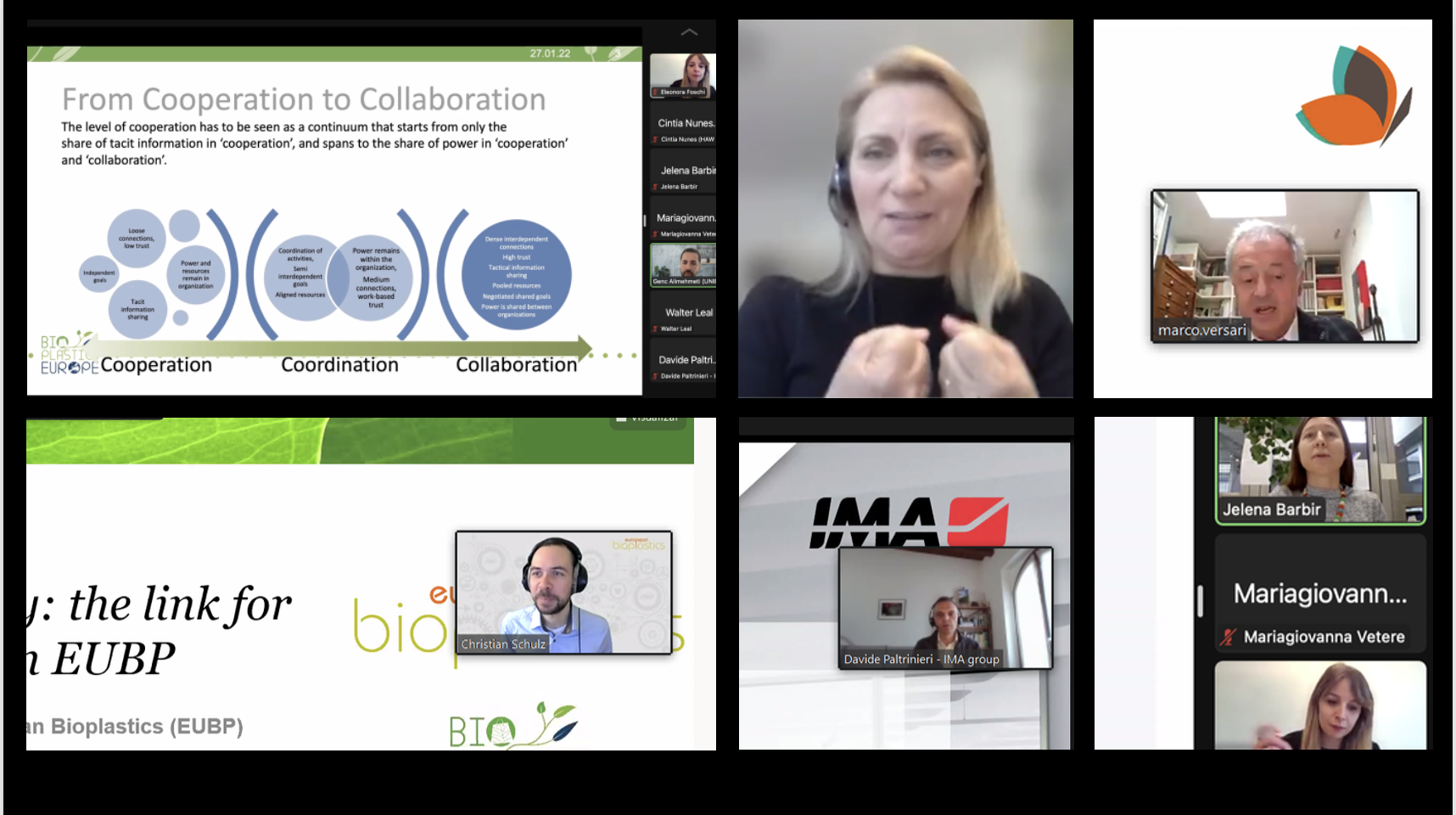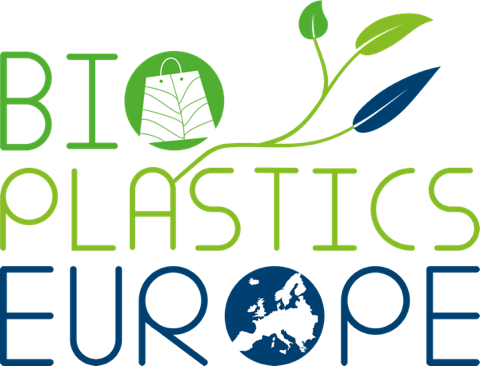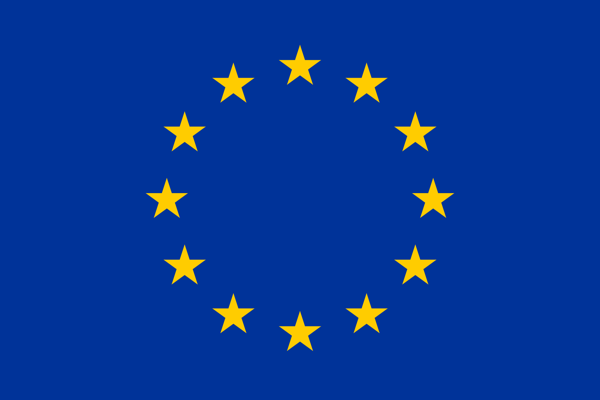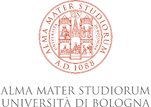Recap: “How do cooperation models strengthen stakeholder engagement for circular bio-economy”
Here you can read a summary of the online event “How do cooperation models strengthen stakeholder engagement for circular bio-economy”, which took place on 27 January 2022.

BIO-PLASTICS EUROPE kicked off 2022 with an open virtual event organized by University of Bologna (UNIBO) in cooperation with the Hamburg University of Applied Sciences (HAW Hamburg). We believe that a systemic transition towards a Circular Economy is only possible if stakeholders are engaged and cooperate between each other. Therefore, there was no better way to start the new year than by gathering more than 60 people to discuss the benefits of different cooperation models in the circular bio-economy. The event was moderated by Dr. Eleonora Foschi from UNIBO.
Prof. Angelo Paletta from UNIBO and Prof. Walter Leal from HAW Hamburg opened the event talking about the potential of cooperation for stakeholders who are keen to engage in a circular economy. Then, two speakers from the BIO-PLASTICS EUROPE project laid out the framework for the event.
Dr. Jelena Barbir, Lead Project Manager of BIO-PLASTICS EUROPE, presented the project’s innovative stakeholder engagement strategy, which has so far reached over 780 interested parties.
Dr. Genc Alimehmeti from UNIBO spoke on how business models can change with growing trust between stakeholders, due to sharing in information and power. Through collaboration, organisations can decrease their costs and increase the access to resources and influence on policy making and public awareness.
In the next section of the event, speakers from the business sector discussed how their organisations benefitted from cooperation in the industry.
Mariagiovanna Vetere from NatureWorks presented the company’s involvement in a new joint venture in the Nakhon Sawan Province, Thailand. The company specializes in the production of PLA plastic products from corn. The new plant in Thailand will produce bio-based plastics using locally grown sugar cane, moving towards a circular economy and driving sustainable innovation in bio-based plastics. The new facility is expected to start operations in 2024.
Next, Christian Schulz from the association European Bioplastics e. V. presented how different organisations can profit from cooperation to maximize their joint output. The association, founded 25 years ago, provides information and services to partners and industry and acts as a networking hub to foster further collaboration.
Afterwards, Davide Paltrinieri from IMA Group/ILAPAK presented their network of laboratories and testing areas, OPENLab. OPENLab aims to build a connection between machine manufacturing, packaging and customers to develop innovative packaging solutions whilst saving time and resources for all partners.
The last speaker was Marco Versari from Biorepack, an Italian non-profit consortium for organic recycling of biodegradable and compostable plastic packaging. Biorepack aims to ensure the achievement of the recycling and recovery targets for biodegradable and compostable plastic packaging in Italy. In a recent effort, Biorepack managed to reduce the plastic contamination of collected food waste through national and local communication campaigns to encourage the use of biodegradable plastic bags in food waste collection.
Afterwards, all speakers participated in the Q&A section answering questions from the audience. They once more expressed the importance of cooperation to maximize impact and of open communication and trust for the success of collaborations.
We thank all speakers and attendees for joining us for our first public activity of the year!


